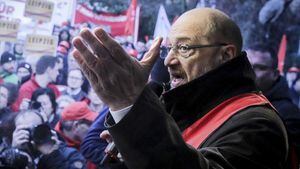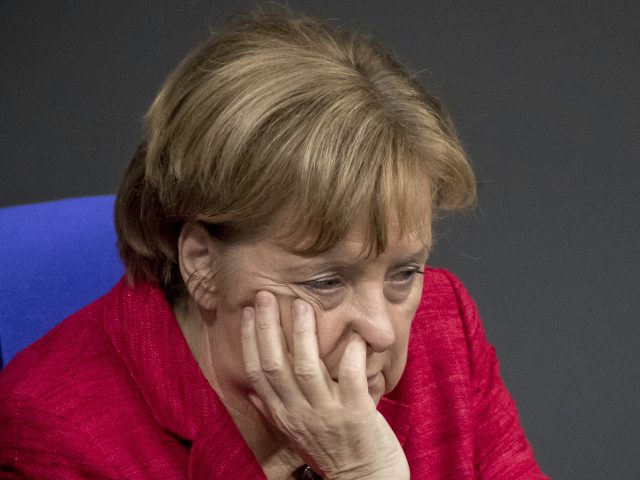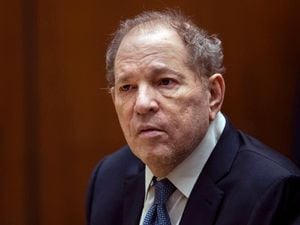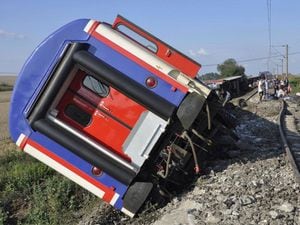Pressure on Germany’s SPD to consider new coalition amid post-election impasse
President Frank-Walter Steinmeier has urged politicians to compromise.

Pressure is growing within Germany’s Social Democratic Party to at least discuss the possibility of forming a new government with Chancellor Angela Merkel’s conservatives.
SPD leader Martin Schulz ruled out returning to the current “grand coalition” with Mrs Merkel after leading his party to a disastrous result in September’s election, but appeared to soften his stance before a meeting on Thursday with President Frank-Walter Steinmeier, who has urged politicians to compromise.
“The SPD is fully aware of its responsibility in the current difficult situation,” Mr Schulz told German news agency dpa. “I’m sure we will find a good solution for our country in the coming days and weeks.”

Mrs Merkel’s failure to reach a deal with the environmentalist Greens and the pro-business Free Democrats after four weeks of talks put all of Germany’s mainstream parties on the spot. If no one budges, the options are a minority government – never previously tried – or a new election.
Several Social Democrats, while expressing scepticism, have suggested their party should discuss another coalition with Mrs Merkel or support for a minority government led by her.
“If absolutely nothing else works, we must again consider a grand coalition,” SPD MP Karl Lauterbach told public broadcaster ZDF.
The party’s deputy leader, Thorsten Schaefer-Guembel, said the Social Democrats should not rule out anything.
“We need to discuss every option,” he told the Passauer Neue Presse.
Meanwhile, the fate of another key figure in the German coalition talks could be decided later. Horst Seehofer, the leader of the Christian Social Union which forms the Bavaria-only part of Mrs Merkel’s conservative bloc, was due to hold talks with senior party members late on Thursday.
There was widespread speculation of a party shake-up.
Mr Seehofer’s party lost a significant share of its voters to the upstart nationalist party Alternative for Germany in the September 24 national election. The Christian Social Union is keen to avoid a similar blow in next year’s Bavarian vote, putting pressure on its 68-year-old leader to step aside and make way for a younger rival.




